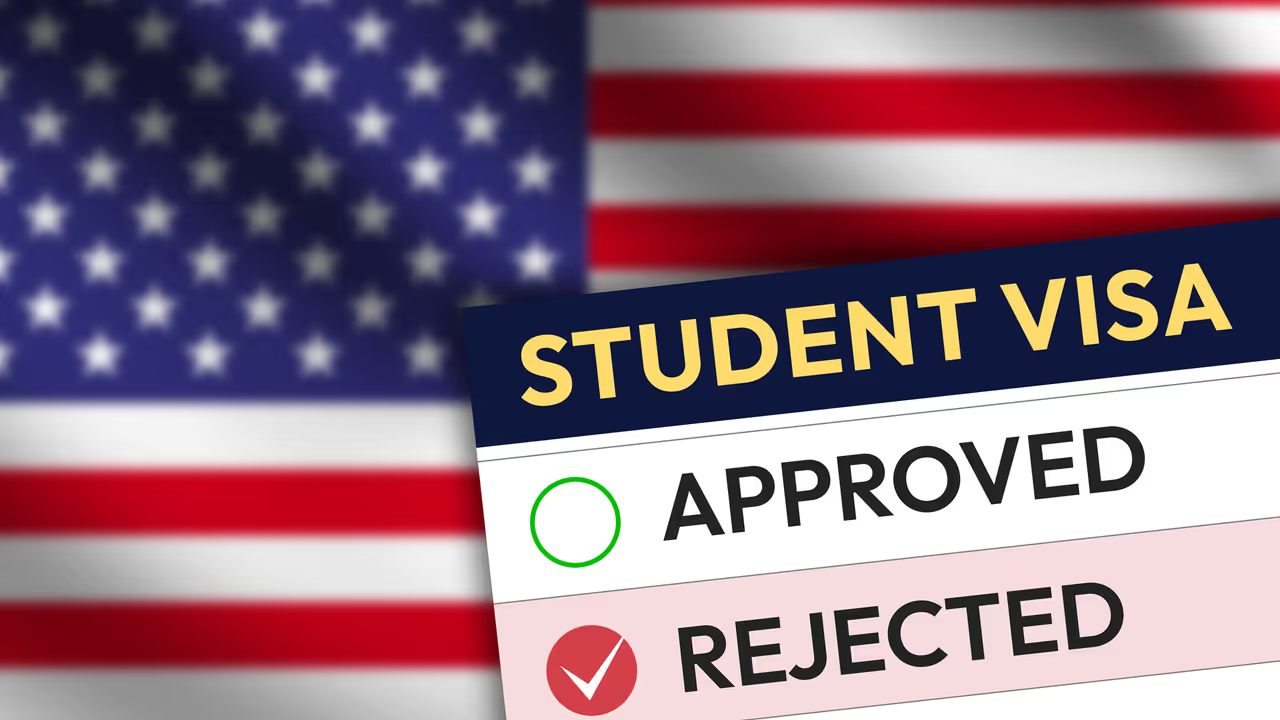Earlier, the Trump administration had stopped scheduling new visa interviews for international students at US embassies and consulates around the world.
Bengaluru: Students who wish to study in the United States under the F, M, or J non-immigrant visa categories will now be required to set their social media accounts to ‘public’ as part of the visa application process.

In a post on X, the official handle of the US Embassy in India (@USAndIndia) shared the announcement stating, "Every visa adjudication is a national security decision. Effective immediately, all individuals applying for an F, M, or J non-immigrant visa are requested to adjust the privacy settings on all of their personal social media accounts to 'public' to facilitate vetting necessary to establish their identity and admissibility to the United States."
Here are some of the most Frequently Asked Questions (FAQs)
Q: What is the new rule announced by the US for visa applicants?
A: All individuals applying for F, M, or J non-immigrant visas must now set their social media accounts to public during the visa screening process.
Q: Who does this rule apply to?
A: The rule applies to applicants of the following US visa categories:
F visa – Student visa
M visa – Vocational student visa
J visa – Exchange visitor visa
Q: Why is this rule being implemented?
A: According to the US government, the rule is intended to enhance identity verification and determine an applicant’s eligibility and admissibility under US law.
Q: Which social media accounts are covered?
A: Applicants must make all listed social media accounts public, especially those mentioned in the visa application form (DS-160). This includes platforms such as Facebook, Instagram, Twitter (X), LinkedIn, YouTube, TikTok.
Q: How long do my social media accounts need to remain public?
A: Applicants are expected to keep their accounts public at least throughout the visa application and processing period. Specific timeframes may vary by case, so it’s advised to follow official instructions closely.
Q: Will this affect my visa approval chances?
A: The US authorities say the review is strictly for security and identity verification. Content inconsistent with visa declarations may impact decisions.
Q: What if I don’t have any social media accounts?
A: Not having social media does not disqualify you. However, you must indicate this truthfully in your visa application form.
Q: What happens if I keep my accounts private or give false information?
Failure to comply may lead to processing delays, denial of the visa, or future ineligibility for US travel.
Q: Is this rule permanent?
The rule is effective immediately. Its duration or potential revision will depend on US immigration policies going forward.
Harvard at the heart of new Visa rule
The Trump administration had stopped scheduling new visa interviews for international students at US embassies and consulates around the world. The pause was aimed to look more closely at students’ social media activity before giving them visas. The move was triggered after Department of Homeland Security attempted to revoke Harvard’s certification to admit international students, as the university did not submit details of how it was addressing allegations of anti-Semitism on campus.
Federal officials claimed that Harvard failed to provide sufficient information about steps it was taking to ensure compliance with the requirements of the Student and Exchange Visitor Program (SEVP), which includes maintaining a safe and inclusive environment for all students.


